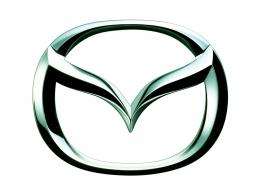November 27, 2011 report
Mazda to showcase i-ELOOP fuel-saving braking system

(PhysOrg.com) -- Mazda has announced what it claims to be the world’s first capacitor based regenerative braking system, as a unique fuel-efficient solution for passenger vehicles. The system is called i-ELOOP, which stands for Intelligent Energy Loop. The concept is special because it makes use of a capacitor, not rechargeable batteries, to temporarily store energy captured from braking.
Regenerative braking systems that store energy into batteries during braking are becoming a popular concept in new car constructs as they help reduce fuel consumption. Regenerative braking systems in hybrid vehicles generally use a large electric motor and dedicated battery.
The use of a capacitor for storing large volumes of electricity has advantages over batteries, says Mazda, because the capacitors are charged and discharged quickly, in seconds, and are less vulnerable to deterioration through prolonged use.
In detail, the i-ELOOP features a 12-25V variable voltage alternator, electric double layer capacitor and DC/DC converter.
The i-ELOOP starts to recover kinetic energy the moment the driver lifts off the accelerator pedal and the vehicle starts to decelerate. The alternator generates electricity at up to 25V for maximum efficiency before sending it to the capacitor for storage. The DC/DC converter steps down the electricity from 25V to 12V before it is distributed directly to the vehicle’s electrical components.
The e-ELOOP is to make its debut in Mazda’s Takeri concept car at the 42nd Tokyo Motor Show and will then appear in production models in 2012. The Takeri is described by the company as a next generation mid-sized sedan.
The core message in the Mazda announcement is that the new system is a green solution for car-buyers who do not opt for hybrids. As engadget phrased it, "Mazda decided there's simply no reason why hybrid cars and EVs should have all of the regenerative braking fun." The i-ELOOP is being positioned as a gas-saver for internal combustion engine vehicles. Mazda claims the i-ELOOP system improves the fuel economy of a vehicle by around 10 percent under the tougher, real-world driving conditions in city traffic: Those include the often frequent acceleration and braking through city streets.
The i-ELOOP also works in conjunction with Mazda's i-stop idling stop technology, to extend the period that the engine can be shut off.
Japan-based Mazda launched its first passenger cars in the early 1960s. Today it’s one of Japan’s leading automakers.
© 2011 PhysOrg.com



















